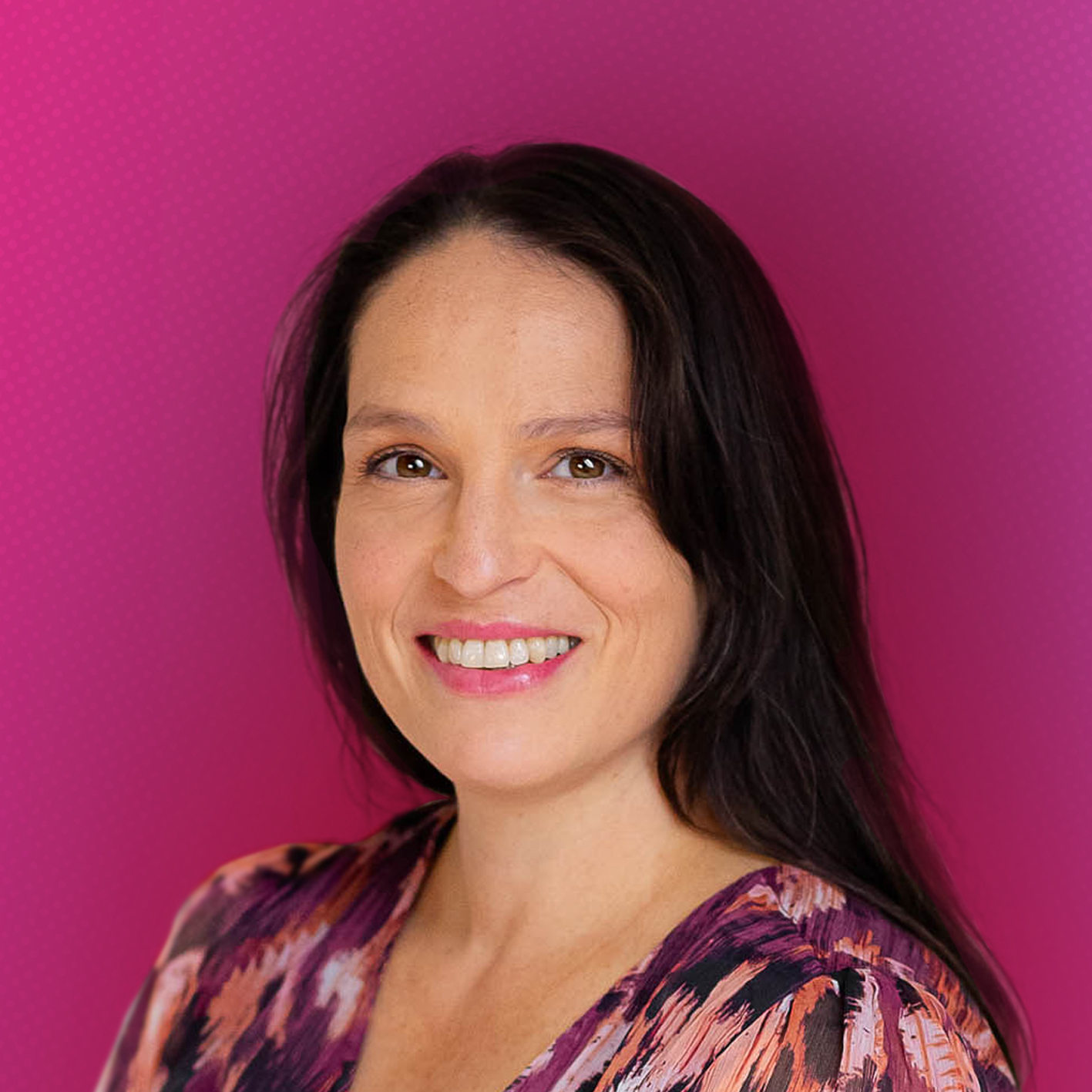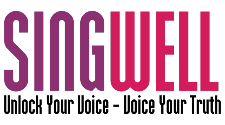How do you prepare for a singing performance? After reading this article you'll see how performance exercises for singing can have such an immediate impact on your performance. You'll be more expressive, you'll sing with more charisma. Right before a show, the mindset and confidence are more important than the technique!
Don't worry about technique before a singing performance
When there is a show coming up, and I’m talking from at least a week in advance, there is basically not much you can do to improve your technique.
You might be able to a bit, but not in a substantial way which is worth your time.
So you work on your voice all you want in your regular practice, but a week before a performance, you close that book shut and open this one: this course is to prepare you for the show mentally and practically.
And you need to start thinking in terms of:
'I am a complete product. My song is a complete product.'
A bonus: they are good for your vocal technique. Even though it's important that while preparing for a show you don't worry about vocal technique.
See, there is only so much you can improve about your voice and technique in a few days.
So don't even bother. Focus on the whole, on the performance.
Don’t worry, you don’t have to wait until you have a performance scheduled to practice towards it. You will learn how you can improve your performance already in your routine practice, but the golden rule is: from a week before the show - you are mine.
You will most likely find that some of the below performance exercises below are actually good for your vocal technique as well.
Performance exercises will improve your stage performance
If you want to even come close to looking and sounding like a pro in a show - you need performance exercises.
If you want to get to a feeling of control of your vocal technique - you need performance exercises.
If you want to not go absolutely ballistic trying and trying to become the singer you want to become - you NEED performance exercises.
It's when you sing a song from start to finish with a certain scenario or image in mind.
That scenario should be empowering, fun, even funny if possible, something which will knock you out of the normalcy and your comfort zone, but not in an intimidating way.
Singing your song in this way will then result in a much better performance, a more gathered up, coherent performance but most importantly - a more expressive and more impressive one.
The case of Lizzy
I want to tell you about a student of mine, and how performance exercises transformed her in almost no time at all.
Let's call her Lizzy. She claimed she has a psychological problem singing. Lizzy couldn’t handle her own singing sound, she thought it was just horrible. So she almost never dared to sing, and when she did she would immediately stop and shake her head: oh that’s was really bad.
Whenever she would sing - her face was sour, as if she was in the last place on earth she wanted to be, doing the last thing on earth she wanted to do.
I told her, honey, that face - that’s what’s gonna bring you down. The voice is fine. We can always make it better, but if you have that face on - no one will get anything good out of your singing.
So I asked her: when is a time when you felt up in the clouds, ecstatic, thrilled all the time? She said: on my honeymoon, in Disneyland. I said: good, you look in the mirror now and remember what that was like. Pretend as if you are there. And the face you get on, do not take it off no matter what happens.
That was the first time she sang a whole verse. Finally, we can work with that, because now you are singing more than 4 seconds! You are giving it a chance.
I gave her one thing to focus on, a thing that overrode every bad thing she could think about her singing. So what was left was to simply sing now. And we could take it from there and work on it.
About the author

I’m Linor Oren, founder of SingWell. I have an opera background and in the past I've performed on stage. I've taught hundreds of students how to find their authentic voice. What I’ve learned is that singing isn’t about being “born with it” — it’s about unlocking what’s already inside you with the right tools and guidance. My passion is helping singers at every level grow in confidence, technique, and joy, so they can sing with freedom and expression.
Why do performance exercises work?
- The exercise puts you in a different mindset where you already KNOW how to sing.
- And then the chances of you lingering on anything that might hold you back while performing - judgment, self deprecating thoughts etc - will skydive towards zero.
- You CANNOT afford spending time thinking of technique when you are performing. You cannot spend time questioning whether you are doing ok or not, while you are up there performing. You have to actually do the stuff you already know how, give it your best, no hesitations. Once there are hesitations - no longer your best 😉
So it's the mindset. And that is also relevant to your practice at home. At a certain point, if you want an upgrade in your vocal abilities - you need that mindset which tells you: that thing you have been TRYING so hard to master for this long - you got it. Let’s just do it.
But it’s not easy or natural for us when we practice. In a practice we always have to evaluate and judge our singing to make sure it was indeed right, or the best it could be. We are not wired to thinking “we’ve got it”.

"
"A great performance begins long before you step on stage. When you trust your preparation and let go of control, your focus shifts from perfection to connection, and that is where real artistry lives."
The case of Natalie
Another story is of one of my first students here in Amsterdam, let’s call her Natalie.
Natalie was a total beginner, with some fundamental and serious technical and musical awareness issues.
We spent 2 years of almost constant weekly lessons, working on all those issues.
She learned a bunch of technical exercises. She learned to develop her musical ear, then she had to learn how to notice what she is doing at home and when it’s right or wrong, all that took a while.
After one year she would sing so much better. Sometimes. On a certain day, or a certain song, and every now and then she needed me to guide her again. So the technique was not completely in her control.
At one point I realized that whenever I would ask her: ok, what just happened? To get her to be in control of the process. She would say: well, I was trying to do this and this, and I think it was mostly ok.
The words try and think, ok, not so bad, I’m not sure. All those were telling her she doesn’t really know how to do those things. I had enough of that. Enough trying, I said. Time to do it. Yoda in Star Wars was right.
So I gave her a performance exercise: imagine you are a professional singer with 40 years of experience on stage (she’s 30 years old, but who’s counting).
Now you go on stage and you sing with the audience, they sing with you, and that thing you were “trying to do”, you know how to do this. That’s your specialty. You have been doing it on stage for 40 years.
Need I say it worked like a charm? She immediately got a 50% increase in succeeding doing that thing she was trying so hard to do before. And that was only the first “try”.
Her homework was to focus on the performance exercise in her practice. When she came back for the next lesson, this time after two weeks - she was FINALLY singing at a new level. It was consistent, and there was no turning back. After 2 years, that is what it took to really get ahead.
Doing this kind of exercise with hundreds of students I got a quick and very satisfying result 100% of the time.
It's because with performance exercises you are prioritizing what actually makes a good singing performance. And vocal technique, believe it or not, is not the first thing that makes a good performance.
On the singing stage, you need authenticity, expression, charisma!
Performance exercises give you that. They give you the delivery of a piece, a song. They can make you think of the meaning of a song. They are a shortcut to channel what you want to convey to your audience.
In my performance course SingWell on Stage I give you a bunch of performance exercises, for all different types of scenarios and vocal and musical goals.
Also check out above podcast interview that vocal coach Zoe Stibi had with me: Singing with Freedom, Not Fear.
A few things I talk about with vocal coach Zoe here: technique is important, but it’s equally important to focus on performance. A few tips for balancing technique and performance:
- Sing through: Always end practice sessions by singing through a song, focusing on the music and lyrics rather than technical perfection.
- Perform regularly: Even if you’re not fully ready, start performing in small settings to build confidence and experience.
Speaking about singing on stage
Your technique doesn’t have to be splendid to move the audience. But you have to (l)earn your place on stage. And guess what: there is a system to this.
No longer a little mouse...
Maybe you feel it's time to stop shushing your own voice and take your desire to sing serious. My weekly 'Belting Mouse' mail shows you how. It gets you on track with stories and insights from my life as a singer and that of my students.

For 'little mice' who are tired of squeaking and want to start belting...
Frequently Asked Questions
What should I focus on the week before a singing performance?
The week before your performance is not the time to fix technique. Focus instead on the whole picture, your mindset, confidence, and emotional connection to the song. Practice full performances, not exercises. Let go of technical thoughts and trust the work you have already done.
How can I manage stage fright before a performance?
Stage fright is normal and often just a sign that you care. Use visualization, grounding, and breathing exercises to calm your nerves. Remind yourself that the goal is to share a story, not to be perfect. A clear intention and playful attitude will replace fear with focus.
How do performance exercises improve my singing?
Performance exercises shift your attention from control to expression. By imagining specific scenarios or emotions while you sing, you train your body and mind to perform freely and naturally. This mindset not only builds confidence but often improves vocal technique as a side effect.
